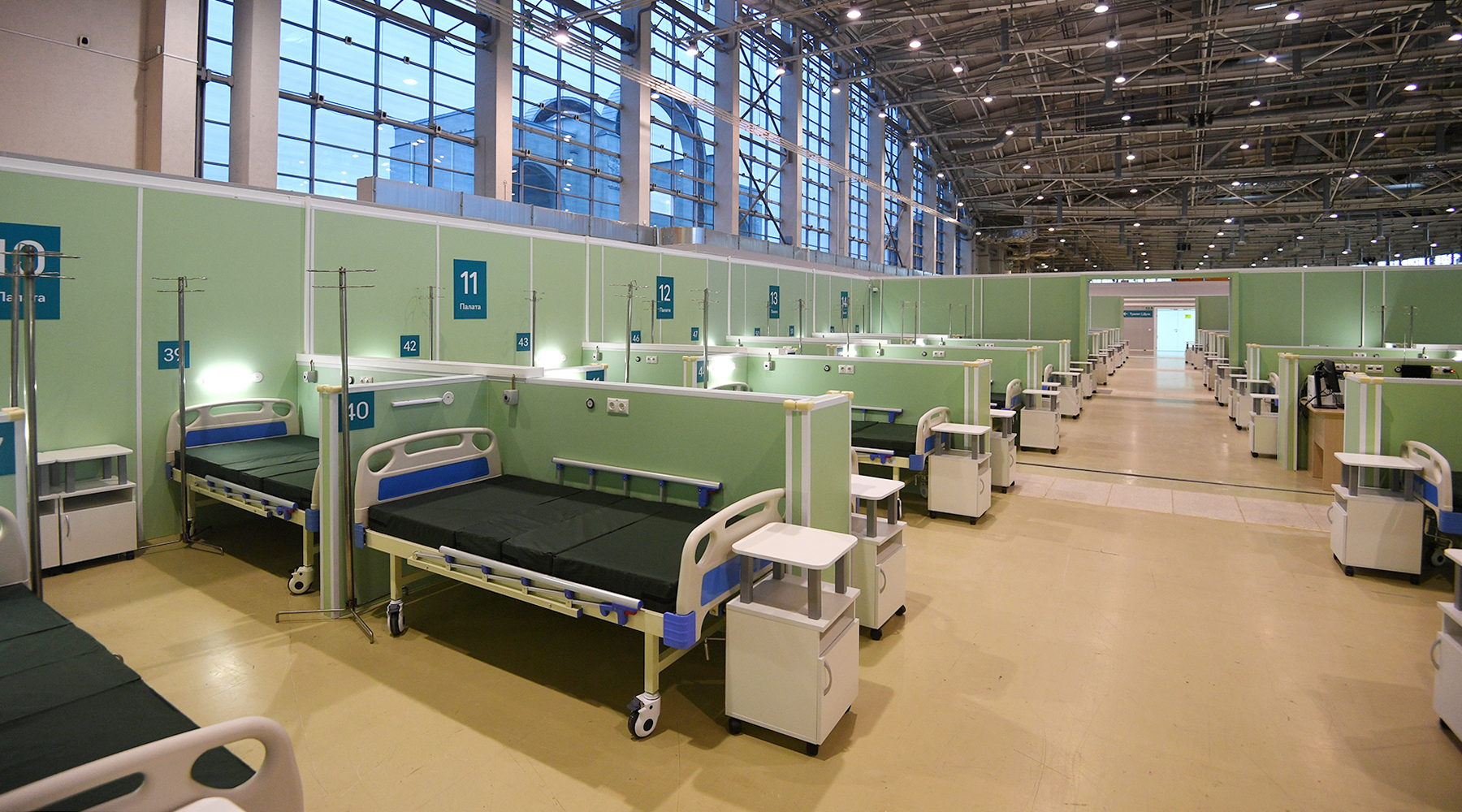Over the past day in Russia recorded 8536 new cases of coronavirus infection. Operational headquarters notes that 38.5% of new patients with COVID-19 did not have clinical manifestations of the disease.
A day earlier, 8863 new cases were detected in the country, on the previous day 9035. In total, 432,277 cases (+ 2%) of COVID-19 are known in the Russian Federation.
Since the beginning of the epidemic, 195,957 people have recovered (45.3%), including 8972 over the past 24 hours. At the same time, 5215 people (1.2%) died from complications that developed against the background of coronavirus infection and concomitant diseases. 178 people died per day.
According to Rospotrebnadzor, in Russia more than 11.4 million tests for coronavirus have been performed. During the day, the number of studies performed increased by 274 thousand. Due to the spread of coronavirus, 303 thousand people remain under medical supervision in the country.
In Moscow, the largest number of cases in the country is still recorded, but this indicator is decreasing. According to data for June 3, 1842 new cases of COVID-19 were detected in the city. A day earlier, this figure was 2286, on the day before it - 2297.
Other regions where a significant number of new cases were recorded were Moscow Region (736 people), St. Petersburg (380), Sverdlovsk (357) and Nizhny Novgorod (347) regions.
Moscow Mayor Sergei Sobyanin said that only 50% of the medical facilities deployed in the capital specifically to combat the new type of coronavirus were used.
“There was a situation in which we passed the worst-case scenario ... Thanks to the rather stringent sanitary measures, we were able to delay the peak values of diseases for almost a month compared to many cities,” the mayor said during an online summit of city mayors on Tuesday. Peace “Together we stand. Cities vs. COVID-19. " His words are quoted by TASS.
Sobyanin noted that the current situation in Moscow made it possible to study the challenges faced by "European, Chinese, American cities, from Wuhan to New York."
- Chambers in the temporary hospital in the pavilion at VDNH
- RIA News
- © Grigory Sysoev
As the mayor said, the largest hospital system in the world was formed in the Russian capital, which consists of almost 40 thousand permanent and temporary beds. In addition, Sobyanin continued, an outpatient network of 40 centers was created in the city, "fully equipped with modern radiation equipment and technologies for the diagnosis of COVID."
Sobyanin also mentioned the testing system deployed in Moscow, which allows one to do 58 thousand PCR tests and ELISA diagnostics in one day, as well as the clinical committee of leading specialists of the country and the city formed in the capital.
The mayor of the capital indicated that all these measures helped smooth out the pandemic wave and prevent the peak values of the work of the Moscow medical system.
The return of hospitals to specialized work
Meanwhile, Rospotrebnadzor issued rules for the return of hospitals to work on a profile. The department indicated that before this, a number of activities should be carried out in the institutions.
Recall that from June 1, Vladimir Putin instructed to resume the provision of planned medical care, both primary and specialized.
According to the guidelines of the Rospotrebnadzor, in the hospitals that received patients with coronavirus, the wards should be freed from the patients and special organizations should carry out complete disinfection, the quality of which must be checked in the laboratory. As part of this procedure, the filters in ventilation systems must also be replaced.
After this, a number of measures should be implemented. In particular, beds should be placed no closer than 1.5 m from each other, staff and patients should have free access to disinfectants, and should also be equipped with protective equipment.
In addition, patients should be taken only in compliance with the rules of social distance. At the entrance, health monitoring points should be organized, and before hospitalization, people should be tested for coronavirus.
Among other measures, mandatory disinfection of dishes when feeding patients and limiting the admission of visitors not related to the provision of medical care are mentioned.
Among other things, the institution should have an urgent action plan if a carrier of coronavirus is found in the hospital.
Earlier, the Ministry of Emergency Situations talked about the results of work on the disinfection of social facilities in the country. According to the department, to date, more than 2.7 thousand medical and 1.6 thousand educational institutions have been disinfected.
In total, the specialists of the Ministry of Emergency Situations sanitized socially significant objects on an area of more than 17 million square meters. m

